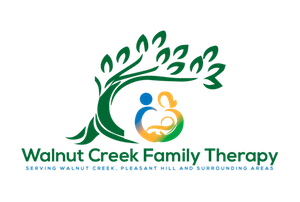Adult Children of Narcissists
Do you worry about what other people think of you?
 Do you have a fear that you’re doing or saying something wrong, all the time? That you don’t have any confidence in yourself and maybe you really don’t even know who you are? Maybe you have a very hard time trusting other people but an even harder time trusting yourself. Do you try to go above and beyond for others only to be disappointed in the result? Do these repeated experiences have you not feeling good enough? Do you feel like you matter?
Do you have a fear that you’re doing or saying something wrong, all the time? That you don’t have any confidence in yourself and maybe you really don’t even know who you are? Maybe you have a very hard time trusting other people but an even harder time trusting yourself. Do you try to go above and beyond for others only to be disappointed in the result? Do these repeated experiences have you not feeling good enough? Do you feel like you matter?
If you said yes to many of these questions, then you may be the adult child of a parent with Narcissistic Personality Disorder or a Narcissist. I will refer to an Adult Child of a Narcissist as ACoN.
Narcissistic Personality Disorder (NPD) is a spectrum disorder. Which means that the person suffering from is somewhere on the range of how severe the behaviors and symptoms are. The following are a mix of the official traits according to the DSM-IV-TR and known psychological traits about people with NPD :
- A constant need for attention or praise
- A belief that they are “special” and should only associate with other “special” people (people with high status, financially wealthy, highly educated, etc)
- Feeling envious of others or believing that others are envious of them
- Reacting to criticism with anger, shame or humiliation
- A preoccupation with success or power
- Exaggerating their achievements or talents
- A sense of entitlement or special treatment
- Being easily hurt or rejecting if someone does not agree with them
- Failing to recognize other people’s feelings or perspectives
- Exploiting others for personal gain
You may now have a pretty good idea of what someone with NPD looks like. You may know someone like this in your place of work, in a current or past romantic relationship, a family member, or a friendship.
Do you believe you’ve dealt with a covert narcissist? Please look into my recent blog that details the differences between a covert and overt narcissist.
But is your mother or father a Narcissist?
Having a parent with NPD can cause your upbringing to be quite different than those around you. You may have dealt with some unique qualities that only comes with being raised in a Narcissistic household.
This link from Dr. Karyl McBride’s website will have a survey that can help determine if you are in fact an adult child of a Narcissistic parent:
http://www.willieverbegoodenough.com/narcissistic-parent-survey/
The more questions you answered yes to, the more likely it is that you have a parent with NPD.
So now what? Are you doomed for a miserable and unfulfilling life? Relationships with your family that are filled with arguments, cut-offs, tension and pain?
Absolutely not.
Healing the pain you carry from the past and creating new and healthy patterns in your life is very attainable.
You can begin to know and trust yourself more. You can begin to feel good about yourself. You can have better relationships with others and not always feel like others are taking advantage of you. You can feel valuable. You can feel free. You can feel like you matter.
You are not alone on this journey. People with NPD are much more common than you think and children of a Narcissistic parent are also much more common than you think. Studies estimate that up to 1% of the population suffer from this mental illness. That means that in the US alone, there are over 3 million people with NPD. That’s millions and millions of ACoNs just in this country.
Now that you know you are an ACoN and you would like to change things in your life, maybe you are sensing some fear and hesitancy.
Therapy sounds great and I know I could benefit from it but what about the costs? How can I afford it?
Therapy is absolutely an investment. It’s an investment into your wellbeing and your level of happiness with your life. Things like learning to love yourself, having wonderfully supportive relationships, and creating the life you’ve dreamed about are priceless. Therapy is a short-term investment into a long-term reward that you will not regret.
Why do I need to change if I have a parent with the problem? They should be the ones seeking counseling!
Yes, in an ideal world, a Narcissistic parent would pursue therapy to improve their relationships and take ownership of the things they have done wrong. But unfortunately a Narcissist often never sees their role in a situation and instead blames everyone else around them. Because they do not acknowledge fault, they are unwilling to change, often making therapy futile.
But that does not mean that you are powerless in this situation. You can take control over your life and choices. You can create the change that you’ve always secretly hoped for. You can free yourself from the burdens and begin to have amazing relationships with the people who matter most in your life, including yourself.
What if therapy goes on and on forever? I have so much stuff from my childhood its overwhelming to even think about let alone address in therapy. I don’t want to be in therapy forever!
Sometimes it can feel overwhelming when you think of all the areas of pain you have in your life. Sometimes it feels like therapy may open a can of worms and you just can’t bear the thought of that.
In my practice, I agree that therapy should never be a forever process. To ensure that, I begin by creating goals together and a rough timeline for those goals so that we are both very clear with the process and the ending. I check in every few weeks to make sure that we are on track towards our goals and alter treatment if need be.
I also do not believe that long-term “talk therapy” is the only answer for most people. I am certified in EMDR therapy which essentially “cuts-through” bad memories and experiences to find relief quickly and easily. I also use EFT, guided imagery, Sand Tray therapy and my certification in working with ACoNs (from Dr. Karyl McBride’s recover program) to address underlying issues efficiently. I also have a great deal of experience and trainings in working specifically with ACoNs so there is no learning curve. I assess where to go with your treatment early on and stay focused on helping you to meet your goals every week. We work once a week, every week until you meet your goals and then we’re done!
Case Studies
The following are case studies of past clients (names and details have been changed to protect confidentiality) that give you a clear idea of how the process works:
Carol came to me with a great deal of anxiety and depression. She had been married previously and was having trouble with her current marriage. She had two young children and after realizing that she had a Narcissistic parent, became determined not to pass down the legacy of Narcissism to her children. Despite many successes in her life, she felt like a failure and had conflicted relationships with her family of origin which overwhelmed her. She did not know what to do and was tired of being anxious and depressed. After identifying her goals, she began to understand and accept her upbringing in a clear way. We created tools for her to manage the grief she was feeling and did EMDR to clear away the old traumas. She began to trust herself again, her depression and anxiety began lifting and she felt more confidence in herself than she ever had at any other point in her life. She learned to manage negative relationships in her life and created boundaries that kept her safe and happy. Her relationship with her husband and children improved drastically and she confirmed that her fears about being a Narcissist herself were untrue. That was a huge relief for her!
Peter was a highly successful business man who had achieved many great things during his lifetime. Although to the people around him it appeared that he had a perfect life, he was riddled with self-doubt and unhappiness. He felt like a phony and believed that everything he had worked hard to build up around him would come crumbling down at any minute. This left him in constant state of worry and dread. He had come to learn that his Mother was a narcissist many years ago but did not believe there was anything to be done about it. He suffered in silence. Through our work together, Peter began to understand his background more intensely. He began to understand the reasons for his feelings and how normal they were. He learned that he had more power and control over his relationships than he ever knew was possible. We used guided imagery and EFT to cast away his old belief systems and instead created positive ones that brought joy and calmness into his life. He stopped holding himself to impossible expectations and acknowledged the successes he had. He began to finally enjoy his life.
What makes me unique?
Many people come to me because they have seen other therapists before and the therapists simply did not understand the complexities that come with being raised in a Narcissistic household. Perhaps they had some understanding about Narcissism but they had no formal training or specific knowledge.
I have spent countless hours dedicating myself to this particular specialization. I am certified in various trainings and have immersed myself in learning the most recent research and knowledge about being raised in a Narcissistic home. I am certified in the 5-Step Recovery Model for ACoNs as well as certification in EMDR, EFT and Guided Imagery. Not only have I dedicated my professional development to this specialization, I also have first-hand personal knowledge about the unique journey of an ACoN. I, too, was raised by a Narcissistic parent which caused me years of a distorted understanding of love. I came through the pain to the other side and learned to completely change my life. I know how powerful recovery can be and the joys it can bring.
If you are curious to learn more, I invite you to call me for a free 20-minute consultation.
I also provide a free E-book to download which discusses a very important and key piece missing from Narcissistic homes: validation. In there you will find very useful information on this powerful tool and how to incorporate it across various situations.

